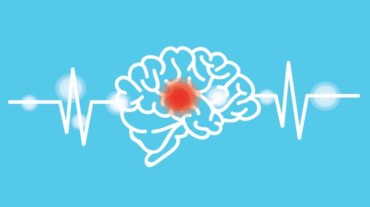
There have been a lot of conversations around neurological health, after covid-19 entered our lives. But it’s important to understand that not just covid, but also your daily activities have an impact on your mental health. Yes, not paying attention to your existing health problems can trigger a stroke.
A stroke occurs when a blockage or bleeding of the blood vessels either interrupts or tends to reduce the supply of blood to the brain. There are millions of people around the world who have been suffering in silence, without having any knowledge about it.
In fact, people across age groups suffer from this condition. A stroke can steal your peace of mind and affect your day-to-day life. It can potentially take a toll on your productivity, and leave you bed-ridden.
According to inputs by Dr Pavan Pai, neurologist, Wockhardt Hospital, Mumbai, day-to-day problems can lead to stroke. These include hypertension, dyslipidemia, smoking, diabetes mellitus, and cardiovascular disease, substance abuse, drinking habits, smoking, and being overweight.

1. Smoking: Among 1 in 10 strokes are linked to smoking. Quitting smoking will reduce your risk of stroke, and will positively impact the health of people who live around you. Getting help to quit increases your chances of success.
2. Diabetes mellitus: If you’re a diabetic, your risk of a stroke is much higher. High blood sugar levels damage the blood vessels, making them stiff and leading to blood clots that travel to the brain causing a stroke. Diabetes and stroke also share a number of risk factors, including a poor diet and lack of exercise.
3. High blood pressure: Half of all ischemic strokes are linked to high blood pressure. It can also lead to rupture of arteries resulting in brain haemorrhage. Knowing your blood pressure and controlling it with lifestyle changes or medication will reduce your risk of stroke.

4. High cholesterol levels: More than 1 in 4 strokes are linked to high levels of “bad” cholesterol, resulting in clogging of the brain arteries. Eating low saturated fats, avoiding processed food and exercise will help to reduce your risk. If you can’t maintain a healthy cholesterol level with lifestyle changes, then medication is a must.
5. Sedentary lifestyle: Over a third of all strokes happen to people who don’t get enough exercise, which then results in obesity and insulin resistance. 20-30 minutes of moderate exercise five times a week will reduce your risk of stroke.
6. Cardiovascular disease: People with past history of heart attacks or atrial fibrillation (AF) i.e irregular heart beat are five times more likely to have stroke than the general population. AF can cause clotting in the heart chambers, which can migrate to the brain. If you are over 50, speak to your doctor about AF screening. If you have AF, talk about treatments that will reduce your risk.
Select Topics of your interest and let us customize your feed.
PERSONALISE NOW7. Alcohol intake: Over one million strokes each year are linked to excessive alcohol consumption. This can cause dehydration and nutritional deficiencies, resulting in both arterial and venous strokes. If you drink, stick to a limit of 1-2 units of alcohol a day.

8. Stress and depression: Almost 1 in 6 strokes are linked to mental well- being. Stress can wreak havoc on your health, which in turn can lead to a rise in BP and sugar levels. Managing stress, depression, anger and anxiety are all important to reduce the risk of stroke. Taking a holistic approach to life is key to a healthy brain.
“The B.E.F.A.S.T guideline helps you remember that timely treatment is the key to saving someone’s life or improving their quality of life,” says Dr Pai.